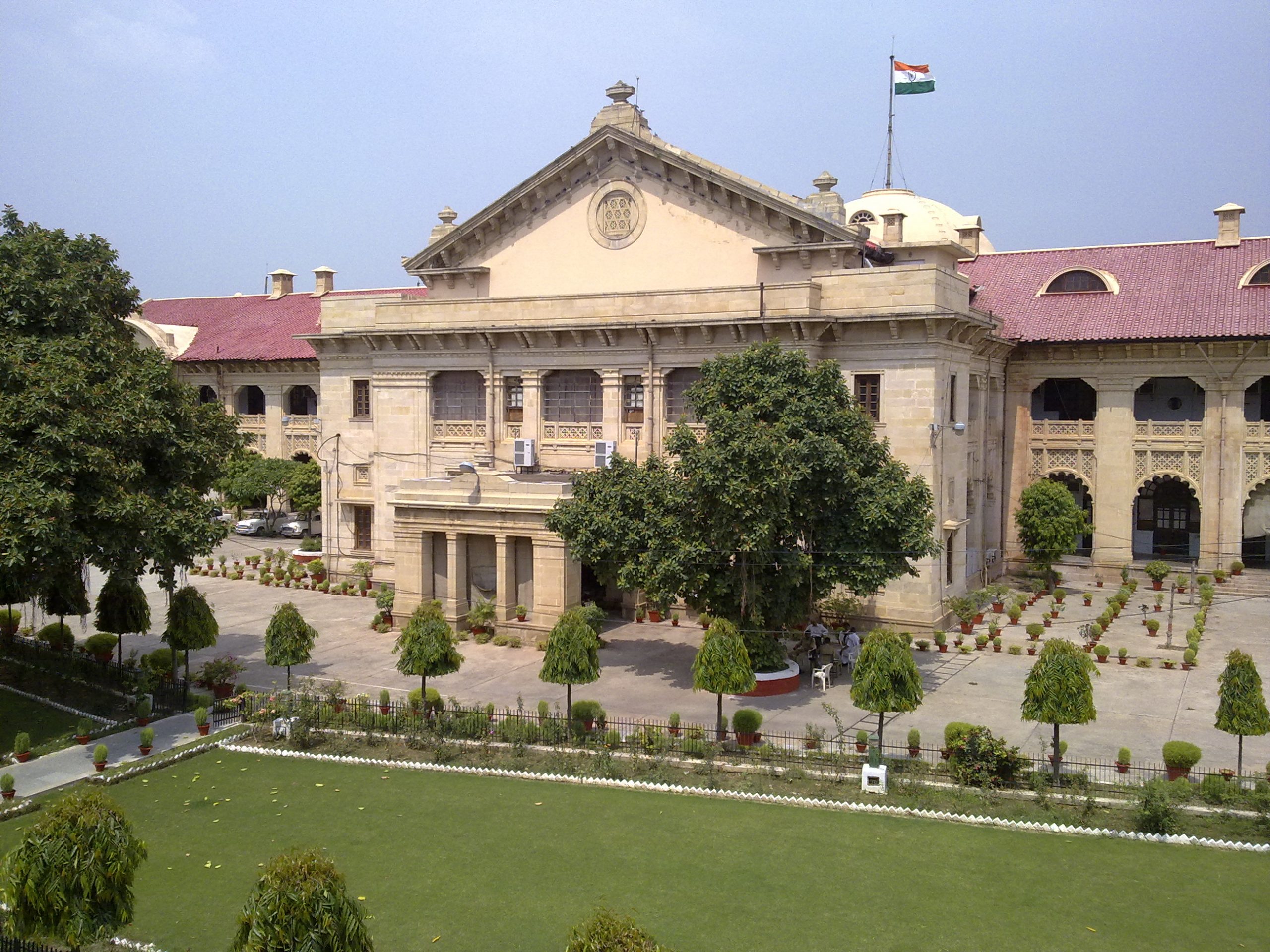Now Reading: Full time salaried Law Officers are not Advocates: Allahabad HC
-
01
Full time salaried Law Officers are not Advocates: Allahabad HC

Full time salaried Law Officers are not Advocates: Allahabad HC
Allahabad High Court, in its recent judgement, held that the full-time salaried law officers cannot be considered as an advocate, even if they occasionally appear in courts during such employment.
The Division Bench comprising of Justice Pankaj Mithal and Justice Saumitra Dayal Singh observed that the occasional appearance of Full Time Salaried employees in Courts/ Tribunals on behalf of their employer cannot be taken to mean that they are continuing as a practicing advocates.
The Honb’le Court made the above observation while dealing a writ petition, [Shiv Kumar Pankha and Another vs. Honb’le High Court of Judicature at Allahabad and Another (Writ- A No. – 25580 of 2018)], filed by two petitioners, who are the law officers of the State Bank of India (SBI) and the Punjab National Bank (PNB) respectively, after their candidatures to appear for the Uttar Pradesh High Judicial Services Exam had been rejected. Later the name of the Petitioner Number 2 was withdrawn and was treated as deleted and the petition remained on behalf of petitioner no. 1 alone.
The petitioner, prior to joining SBI, had practiced in district courts during 2010-2014. In 2014 he took up full-time employment with SBI. He never surrendered his license to practice and the same was never formally suspended. Further he appeared in courts to assist Senior Counsel in bank matters during his employment at SBI as it was permitted under the circulars and guidelines issued by the Reserve Bank of India (RBI).
The Petitioner, in this case, was not permitted to appear for the Uttar Pradesh Higher Judicial Services (UPHJS) in 2018 and that he reason cited was that he was in full-time employment of the bank and that he lacked his requirement under the Uttar Pradesh Higher Judicial Service Rules, 1975. Rule 5 of the 1975 Rules requires that a non-judicial officer must have at least 7 years’ standing as an advocate in order to be eligible for appointment as a District Judge and the same is reflected in Article 233 of the Constitution of India.
The petitioner in his contention admitted that although he was in full time employment at SBI, he continued to practice law by appearing before the courts and therefore his candidature could not be rejected merely because he was a full-time employee of the bank.
To this, the Court rejected his contentions and observed, “…as soon as an advocate enters into full-time salaried employment, he loses the right to practice even though he may represent the employer before the law courts.” The court referred to Rule 49 of the Bar Council of India (BCI) Rules and highlighted,
“The aforesaid rule completely prohibits an advocate from taking any full time employment during his continuance of practice and provides that if he so takes up employment, he shall inform the Bar Council whereupon he shall cease to be in practice as an advocate so long his employment continues…
…Rule 49 of the Bar Council of India Rules creates a legal fiction to the effect that a person duly enrolled as an advocate ceases to be one as soon as he takes a full time employment on salary even if continues to occasionally appear in law Court.”
In view of this legal fiction, the Court proceeded to point out,
“The period of full time employment as Law Officer with the Bank despite his appearance before the court as part of the service condition would not make him a practicing advocate… The period of full time employment cannot be treated as time spent on practice as an advocate.”
The court also referred to the exception observed by the Honb’le Supreme Court judgment in Deepak Aggarwal Vs. Keshav Kaushik [(2013) 5 SCC 277] as,
“Mere occasional appearance of such employees in Courts/ tribunals while in full time employment in few cases that too solely on behalf of their employer cannot be taken to mean that they are continuing to be in practice as advocates. It is but natural that in such employment their main job is not that of pleading and arguing cases before the law courts on behalf of a variety of persons as is expected of an advocate. The nature of their duties is mostly of advising, conveyance etc., which may not allow them enough time for regular appearance before the law courts thus depriving them of experience of a lawyer. Any effort to treat persons in such employment as practicing advocates would be de hors of Rule 49 of the Bar Council of India Rules. An advocate is a person who assists, defends, pleads, or prosecute for another. At times he may represent the State or the public at large in matters of public concern such as in criminal cases and for this limited purpose is a public advocate. The public prosecutor or the district attorney as such by the nature of his work is a public advocate. He as such despite his full time engagement with the State does not cease to be advocate. This is an exception to Rule 49 of the Bar Council of India Rules.”
Thus the Court observed that, “In the present case, there is no material or evidence to establish that the predominant function of the employment of the petitioner as defined/described in the letter of appointment issued to him by his employer Bank is that of practice as a lawyer and that the other functions discharged by him are only bare minimum or incidental.
The Circular letter of the Reserve Bank of India does not seek to alter the terms and conditions of employment of the petitioner, neither do stray appearances recorded in some court cases establish that the Bank had engaged the services of the petitioner, predominantly to represent it in cases before courts, tribunals etc.“
While dismissing the writ petition, the bench emphasized the need to have sufficient experience as Advocate to become a judge and also o the importance of Advocates as a responsible officer of the Court and cited that, “An advocate is a responsible officer of the Court. He is as important as a Judge in the matter of dispensation of justice. He is virtually a minister of justice equally in line with a Judge. He acquires the skills of advocacy by experience and it is often said that at times experience is much more important than knowledge. It is more true in the profession of law wherein devotion to higher cause, the cause of truth and justice is more vital. One gains knowledge through experience by regular practice which cannot be acquired otherwise while in employment or by appearance in some stray cases. It is therefore elementary for holding the post of DJ/UPHJS to have at least 7 years of actual standing as an advocate and not the theoretic knowledge of law as in full time employment.”
Therefore, the Honb’le Court rejecting the writ petition held that, “… we are of the opinion that in the light of the legal fiction created by Rule 49 of the Bar Council of India Rules, the petitioner who has full time employment of the SBI ceased to be an advocate and his service period would not be counted/added in his practice as an advocate to make him eligible for UPHJS.”







